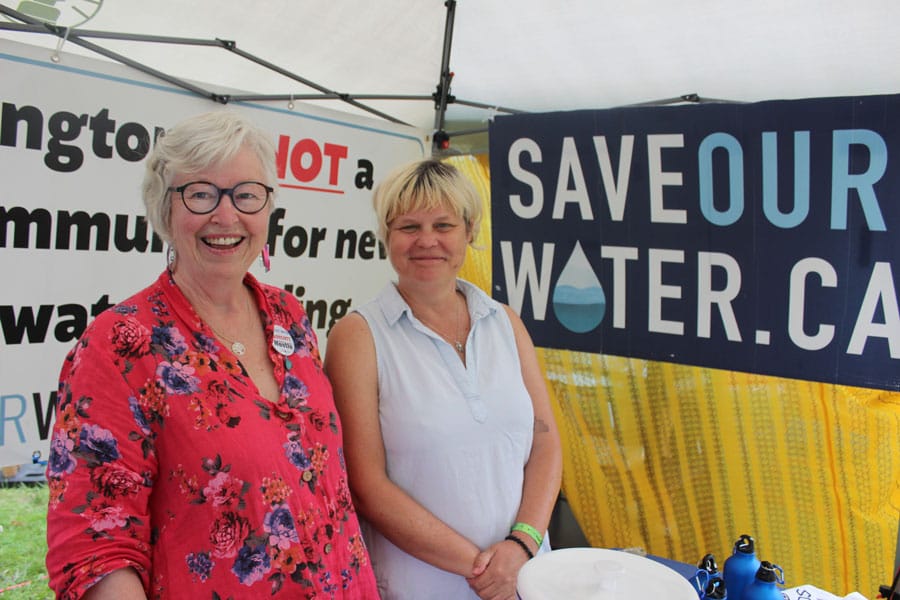ELORA – Local initiatives to save and protect drinking water in Centre Wellington and the City of Guelph are outlined in a new book by an american professor.
Dan Jaffee, an associate professor of sociology at Portland State University, recently released Unbottled: The Fight Against Plastic Water and For Water Justice, which outlines several on-the-ground initiatives that communities undertook to save and protect their drinking water and fight against groundwater extraction by water bottling companies.
Many of these protections only came into law after pressure was put on municipalities and water bottling companies by grass-level organizations.
The work of the Elora-based Save Our Water group and the Wellington Water Watchers take up 50 pages of the 280-page book, said Save Our Water member Donna McCaw in an interview.
Save Our Water formed in 2015 after Nestle Canada bought the Middlebrook well just outside Elora.
As a result of the group’s advocacy, the provincial government declared a moratorium on new permits for water bottling in 2016 that was extended for over four years while the province studied the situation.
New provincial regulations came into effect in April of 2021, one of which is that before commercial water bottlers can apply for a new or increased permit, they must obtain a resolution of support from the host municipality.
McCaw said Jaffee joined the Save Our Water crew for the first time in the summer of 2015 just after Save Our Water was formed.
“He wanted to know our stories and experiences and compare them with those in other communities,” McCaw said, adding he returned twice more to follow the group’s efforts and progress.
The book features interviews with a number of local people as well as folks from Wellington Water Watchers in Guelph.
It also outlines water fights in communities like Strawberry Creek, California, Cascade Locks, Oregon and Flint, Michigan.
“Municipal infrastructure failed in Flint, Michigan, and when that happens, the only solution seems to be bottled water. But it’s a ridiculous way to solve a crisis,” McCaw said.
She said the situation in Walkerton in 2000 – where municipal water was contaminated and residents became ill – really drew attention to the importance of monitoring private and municipal wells and protecting water supplies.
“Walkerton was such a wake-up call. We all assume we have clean water coming from our taps. But you have to be vigilant,” she said.
The book can be ordered online or purchased at Magic Pebble in Elora or the Bookshelf in Guelph.




